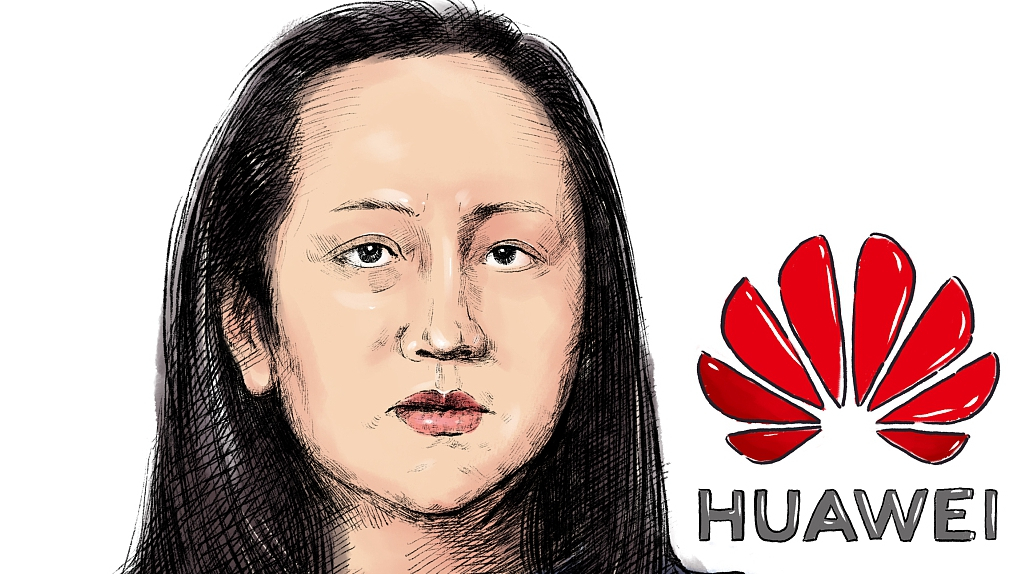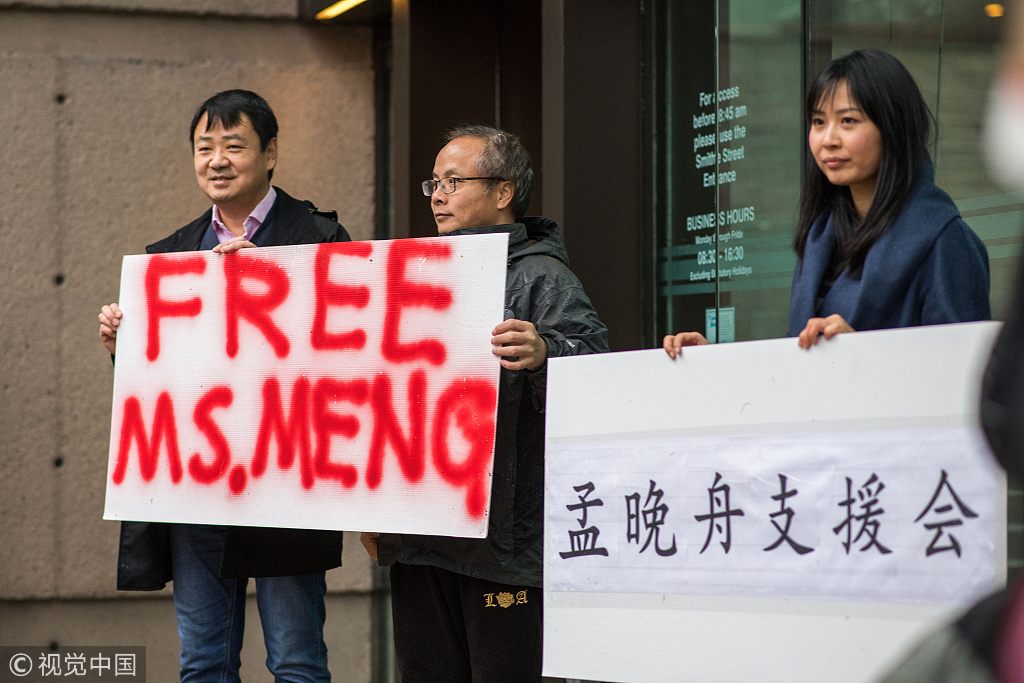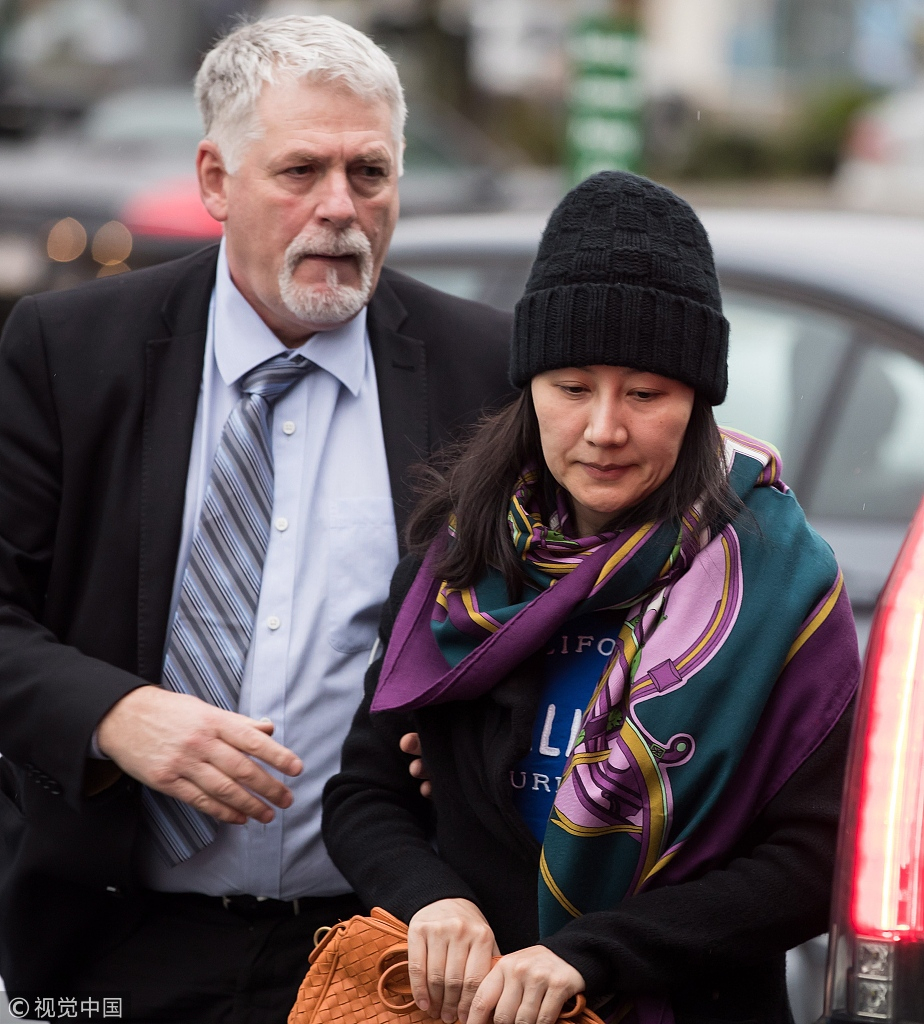
Opinion
21:21, 02-Mar-2019
Canada should find a smart solution for Meng's case
Li Zheng

Editor's note: Li Zheng is an associate research fellow at the China Institutes of Contemporary International Relations, Institute of American Studies, and director of the American Security Center, Institute of American Studies. The article reflects the author's opinion, and not necessarily the views of CGTN.
On March 1, the Canadian government announced that it would approve the extradition hearing of Huawei executive Meng Wanzhou and officially launch the extradition procedure. This decision marks a new phase in the Meng Wanzhou incident, which once again attracted the attention of global media.
Previously, the Canadian government postponed the extradition hearing from January to early March in order to await the outcome of the Sino-U.S. trade negotiations. One month later, after key progress has been made in the negotiation, the Canadian government is still determined to follow through with the extradition process, which is surprising.

People hold signs in support of Meng Wanzhou, chief financial officer of Huawei Technologies Co., outside of a bail hearing at the Supreme Court in Vancouver, British Columbia, Canada, December 11, 2018. /VCG Photo
People hold signs in support of Meng Wanzhou, chief financial officer of Huawei Technologies Co., outside of a bail hearing at the Supreme Court in Vancouver, British Columbia, Canada, December 11, 2018. /VCG Photo
The Meng Wanzhou incident is one of the most complicated international political events in recent years. Canada's use of the U.S.-Canada Extradition Agreement to arrest Meng in Canada is an important reason for it being difficult to resolve. In the past month, China has explained and negotiated with the U.S. and Canada through various channels, demanding that the U.S. withdraw the arrest warrant and extradition request for Meng and ask the Canadian side to release Meng. However, the U.S. and Canada do not seem to be willing to do so.
After Canada announced the launch of the extradition process, the Canadian government is clearly subject to greater pressure than ever before. This pressure comes from the three sides of China, the United States and Canadians. It is difficult for Canada to make choices that satisfy all parties. The initiation of the extradition process does not necessarily mean extradition.
In the process, the Canadian Judiciary will continue to listen to Meng's defense, consider the social and political implications of extradition, and determine whether extradition complies with Canadian laws and procedures. The international community will also judge Canada's judicial independence and its ability to handle such complex international issues from the process of the trial and the final outcome. Therefore, the Canadian government should thoroughly consider the many interests involved in this incident and find a smart rather than a mechanical solution.
Before making a decision, the Canadian government should consider some of the changes that have occurred in the last month.

Huawei chief financial officer Meng Wanzhou, right, is escorted by a member of her private security detail while arriving at a parole office, in Vancouver, December 12, 2018. /VCG Photo
Huawei chief financial officer Meng Wanzhou, right, is escorted by a member of her private security detail while arriving at a parole office, in Vancouver, December 12, 2018. /VCG Photo
First, within one month, China-U.S. economic and trade negotiations have made crucial progress. It is expected that China and the U.S. will reach an agreement before the summer to end the one-year tariff war. The Meng incident coincides with the Sino-U.S. trade negotiations, and is widely regarded as one of the U.S. bargaining chips. Now, once China and the U.S. reach an agreement, the nature of the Meng incident will change.
If Canada still insists on extradition of Meng to the U.S. for trial, it will bring irreparable harm to China-Canada relations and may become the primary factor for undermining Sino-U.S. negotiations.
Second, President Trump once again revealed that Meng and Huawei may be included in the Sino-U.S. trade negotiations. The premise of the implementation of the extradition agreement is that the object of extradition does violate the law. The agreement cannot be used to persecute a citizen of another country for political reasons or to become a diplomatic tool.
Trump's statement actually proves that the Meng incident is not a purely judicial case, but has political motives. This is what the Canadian side needs to fully consider. Previously, the Canadian Minister of Justice revealed that the political factors of Meng would be fully considered. According to the procedure, Canada can refuse extradition on the grounds that it involves political motives.
Third, the attitudes of many Western countries towards Huawei have changed. After the Meng incident, the United Kingdom, Germany, and New Zealand also took some unfriendly action against Huawei under the pressure of the U.S. However, in the past month, the attitudes of these countries have changed. The UK announced that Huawei's security concerns are controllable and will not block the company. Germany and New Zealand also announced that they will not take administrative measures to prohibit Huawei from participating in the construction of its domestic 5G network.
China will welcome Canada to adapt to this trend and bring China-Canada relations back on track and even to a new level. However, if the decision of the Canadian government is contrary to other Western countries, it will easily become a target.
(If you want to contribute and have specific expertise, please contact us at opinions@cgtn.com.)

SITEMAP
Copyright © 2018 CGTN. Beijing ICP prepared NO.16065310-3
Copyright © 2018 CGTN. Beijing ICP prepared NO.16065310-3